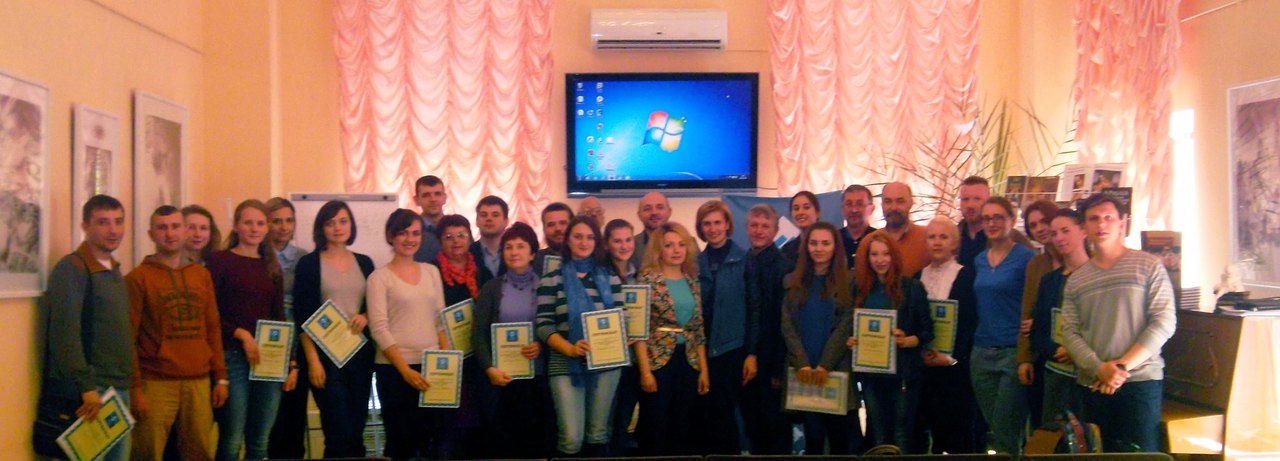 Оn 29 April as the part of the project "Support for journalism education in Ukraine" was held a workshop on media literacy in Sumy State University. The seminar program includes four workshops, during which were discussed counter-propaganda questions and important aspects of media literacy of both consumers of information, and those who create it. Professor, Head of the department of diplomatic and consular service of Diplomatic Academy of Ukraine, MFA of Ukraine, historian Igor Zhaloba told about media and diplomacy.
Оn 29 April as the part of the project "Support for journalism education in Ukraine" was held a workshop on media literacy in Sumy State University. The seminar program includes four workshops, during which were discussed counter-propaganda questions and important aspects of media literacy of both consumers of information, and those who create it. Professor, Head of the department of diplomatic and consular service of Diplomatic Academy of Ukraine, MFA of Ukraine, historian Igor Zhaloba told about media and diplomacy.
During the master class such topics as the evolution of publicity, traditional media and diplomacy, electronic and public diplomacy were discussed. Igor Zhaloba overviewed basis of diplomacy and demands of journalists that have developed historically. "I have no doubt that Ukraine will be successful", - said the professor, adding that it is time to get rid of the so-called principle of "hutoryanstvo" - stereotype that everybody have to help us and ow us something, because our country is wholesome and its problems at the international level will be decided when relationships of power and population will be established.
Board member of the NGO "Center for Journalists, PhD of Social Communications, Professor, Dean of the Faculty of Journalism of the National University" Odessa Law Academy" Tatyana Kuznetsova made a master class on the “consequences of aggression in the media space? ". Since the beginning of XXIst. the word "war" became the key word in the media. This trend has a negative impact on the subconscious of man.Tatyana Kuznetsova said that today's aggression in the media can be divided into four branches: verbal, visual, thematic and subtextual. We can confront it by using media literacy, quality of media education and critical thinking.
About "information operations as part of the information war," told an assistant professor of department of journalism of Uzhgorod National University, Doctor of Philology Vladimir Tarasyuk. The speaker noted that a major problem of those who perceive information is than they are under some "information umbrella" when adapted to information of one media , it is difficult to start believing the other. This happens unconscious imposing of position of the owner of the media we have chosen and we cannot perceive information objectively. He emphasized also that the journalists should be connected to the informational resistance, check the information on three different sources if possible, or to communicate with witnesses their materials must include expert opinions, to engage an independent party to be objective.
Also was paid attention to the theme of work in a combat zone. Lieutenant of Colonel stock, a military journalist, head of the NGO "Open Studio" Anatoly Tobilko during his master class stressed that the journalist, who works in a combat zone, getting there not to do a feat. During the counterterrorist operation in the ATO area six journalists were killed so life is more important than well-chosen angle. You must also take care of the safety of people who are the heroes of material: you must take a written consent to the publication of names. Indeed, "what comes in peacetime, in war can cost lives." Anatoly Tobilko noted that in journalistic materials should be used only lifetime photographs of the victims, the man with the weapon should be identified only for its consent, journalist need to avoid "hate speech" calls to action and write the truth.
The event was supported by the "Media Development Fund" of the US Embassy in Ukraine and the Research Center for regional security of SSU.







